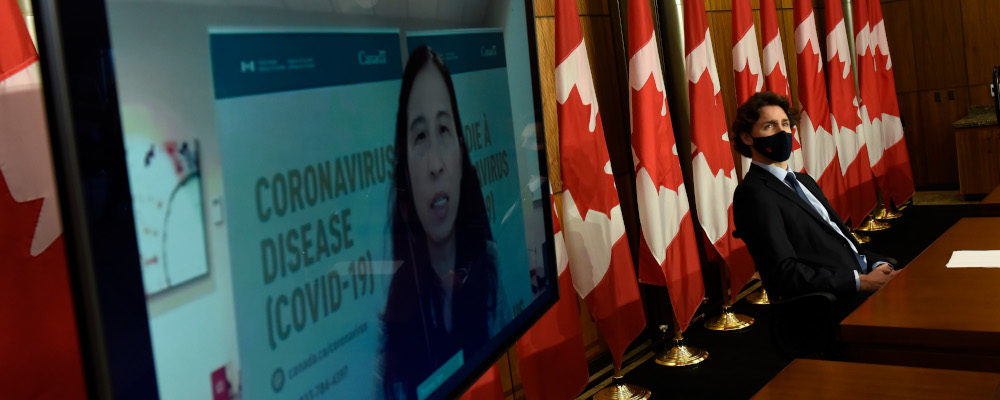Pandemics create fear, and fear extinguishes appetite for balanced discussion. Instead, governments take bold, expansive action. Prime Minister Justin Trudeau’s “sweeping federal vaccine mandate” to “target last holdouts” offers a case in point. The public supports vaccine travel passports, but broad mandates fuelled by emotional rhetoric create affective polarization: partisan groups with anger and frustration on each side.
To date, most discussion on vaccine mandates reflects a principled approach. People must choose a side, for or against. Some argue mandates are a necessarily good thing; mandates will get us back to normal; and they serve the greater good. Others argue mandates are intrinsically bad. They insult individual autonomy—the greatest good any country can ever get.
But a principled approach turns policy positions into moral absolutes. If mandates are good on principle, there should be no limit to their scope. We should pursue them with vigour for all the various diseases for which we have vaccines. Restrictions to freedom of movement “should be tailored to verifiable risk,” according to one opinion in the New England Journal of Medicine.
Prudence offers a better way to craft policy. It avoids turning policy into morality. Prudence uses current circumstance to create policy, in the same way we might choose to carry an umbrella if the sky looks grey. Prudence applies general principles, with nuance, based on the particular need at hand. It makes policy flexible and responsive—something pandemic policy too often lacks.
Michelle Mello, Ross Silverman, and Saad Omer tackled this concept in an article that appeared in the New England Journal of Medicine. They suggested guidelines for mandates based on experience in other infections and pandemics: the 1976 Swine Flu, H1N1, and others. Using past experience, they suggested a five-level rubric to help policy-makers decide whether or not we need vaccine mandates at this time. Paraphrasing their advice, we might consider vaccine mandates if the following things occurred:
- COVID has not been controlled by other measures, such as testing, contact tracing, isolation, quarantines, and so on. If hospitalizations and deaths are increasing (not just cases), we might have good reason to propose mandates to help control COVID-19.
- Scientific agreement has emerged on recommendations for the vaccination of particular groups for which the mandate was being considered.
- Safety and efficacy data have been shared in a clear and transparent manner, which the public can support.
- Barriers to access for vaccination have been removed, and citizens have been promised compensation/protection for any potential adverse events. A robust surveillance program for adverse events is in place.
- A time-limited trial of voluntary vaccination has failed or fallen short of targets for high-priority groups to prevent epidemic spread.
In summary, failure to control COVID-19, scientific consensus, public trust, access to care, and failure of voluntary efforts should guide policy-makers.
Armed with general guidelines, policy-makers still need to draft good policy. Every policy risks concretizing a fluid situation—staking a position and constitutionalizing it. Thus, policy itself needs to be drafted with a prudential mindset. Great guidelines fail if they become rigid and irrelevant once they leave the press.
In a dynamic environment, we need policy that can adapt. Especially in the face of rapid change, policies should have a clear goal and purpose. Why do we need this mandate? What exactly are we hoping to achieve? The policy background and justification should build on the five elements listed above. Implementation often presents an insuperable hurdle even in stable environments. In a pandemic, we need implementation that highlights expected challenges and explores roadblocks, with as much detail and thought as the mechanics applied to making a mandate operational.
Finally, policy needs a review mechanism. How will we know when the policy has served its purpose? Does it have a sunset clause? Do we have an exit strategy?
A principled approach risks public trust. When we confuse policy with morality, it locks us into one policy position—change becomes immoral. Inevitable, necessary policy change guarantees an eventual erosion of public trust. Absent public trust, even the best policy will never perform as well. A prudential approach will never deliver the rallying cries and exciting headlines (some) politicians need, but it always offers the best performance.
Vaccine mandates are one policy tool in a much larger toolkit of policy options with which to tackle a pandemic. Knowledge is rare and good policy tough to make at the best of times. Given the overlapping political, ethical, technological, legal, and scientific issues impinging on vaccination policy, policy-makers might find better traction and public support using an explicitly prudential approach.




